Regularizing the communal police force: Where is the money to pay salaries and allowances?
If the regulation regularizes the entire communal police force, it will greatly increase the payroll and the State will have difficulty ensuring funding to pay salaries, allowances...
The draft Law on Commune Police, recently submitted to the National Assembly Standing Committee at its second session, stipulates that the Commune Police is a semi-professional armed force, part of the People's Public Security organization system, and is the core force in the movement of the entire people to protect national security, ensuring security, order, and social safety in the commune. However, there are opinions suggesting that the Commune Police should be regulated in the direction of regularizing the Commune Police force to meet current practical requirements.
Deputy Minister of Public Security Le Quy Vuong said that the proposal is to define the Commune Police as a people's armed force, belonging to the organizational system of the People's Public Security because according to the provisions of Article 4 and Article 16 of the Law on People's Public Security, the Commune Police belongs to the structure and organization of the People's Public Security.
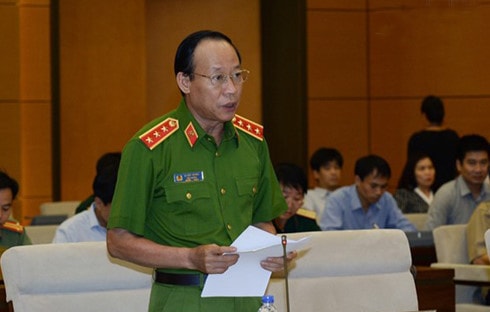 |
| Deputy Minister of Public Security Le Quy Vuong presented the Report at the meeting of the National Assembly Standing Committee on the afternoon of August 15 (Photo: National Assembly) |
In addition, there are also opinions suggesting that the regularization of the police force in towns where regular police are not yet deployed should be regulated, while the Commune Police deployed in communes should be kept as prescribed by current law and regulations should be added to meet the requirements in the new situation. The regulation of regularization of the Commune Police force is to ensure that this force can more effectively perform the assigned tasks, especially the tasks and powers related to human rights and civil rights, as well as to ensure full conditions of operation, regimes, policies, training, fostering and coaching for the Commune Police.
"The Government sees that if regulations are made in the direction of regularizing the entire communal police force, it will greatly increase the number of people's police forces and the State will find it difficult to ensure funding to pay salaries, allowances, regimes, policies and ensure other operating conditions," said Deputy Minister Le Quy Vuong.
Regarding the proposal to regularize all remaining town police (where regular police have not been arranged), the Government believes that it is reasonable and meets the practical requirements of the current urbanization process in rural areas.
The majority of opinions in the agency examining the draft law, the National Assembly's National Defense and Security Committee, also agreed with the provisions of the draft law, defining the Commune Police as a semi-professional armed force, because they believed that the practical activities of the Commune Police force under this model have promoted the core role in the movement of the entire people to protect national security, ensuring security, order and social safety in the commune, without any major problems. Maintaining such legal status will not create new organizations and staffing.
However, there are still opinions in the National Defense - Security Committee proposing to regularize the Commune Police force with one of the reasons being that if the legal status of the Commune Police is maintained as a "semi-professional armed force", the Commune Police Chief is a commune-level civil servant, the Deputy Commune Police Chief and the Police Officer are non-professional workers, then the qualifications and capacity will not meet the tasks and powers assigned by law, easily leading to violations and infringements on human rights and civil rights.
This opinion suggests regularizing the Commune Police force according to a roadmap suitable to the country's socio-economic conditions. In the immediate future, it is necessary to regularize the Commune Police Chief, while the Deputy Commune Police Chief and Police Officers still operate part-time as they do now.
"However, the regularization of the Commune Police force will increase the number of People's Police, leading to increased budget expenditures in the context of our country's economic difficulties" - Senior Lieutenant General Vo Trong Viet - Chairman of the National Defense and Security Committee said.
Regarding this issue, Ms. Le Thi Nga - Chairwoman of the National Assembly's Judiciary Committee expressed concern that if the armed forces remain as semi-professional, low-level forces as they are now, they will not be able to meet mission requirements.
“When carrying out tasks related to criminal proceedings, the Commune Police have committed many violations that have affected human rights, civil rights and the reputation of the State. Although these are isolated cases, the impact is huge and public opinion is very upset. Among them are cases of beating people to death, causing serious injuries, falsifying case files... If we keep the basis of the ordinance and raise it to law, it will be difficult to resolve the current situation,” Ms. Nga stated her opinion.
Raising the question "The whole country has more than 11,000 communes, if they were to be regularized, imagine how the apparatus would expand?", National Assembly Chairwoman Nguyen Thi Kim Ngan said that the regulation that the Commune Police are a semi-professional armed force is appropriate because it does not increase the payroll.
Furthermore, the practical operation of the Commune Police force under the model of "semi-professional armed forces" has promoted its core role in the movement of the entire people to protect national security, ensuring security, order and social safety in the commune, without any major problems.
In addition, many opinions suggested that the draft Law should clearly show the nature of "semi-professional armed forces"; agreeing to identify the Commune Police as a "semi-professional armed force" because it has more of a social management nature, but must still ensure professionalism./.
According to VOV.VN

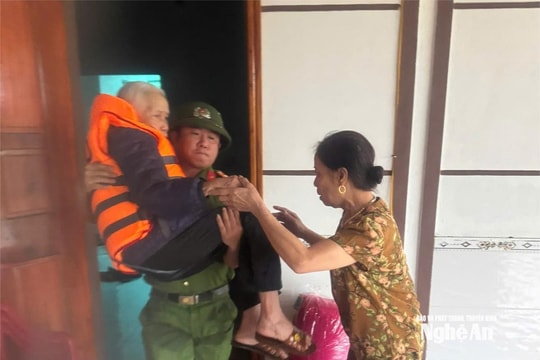
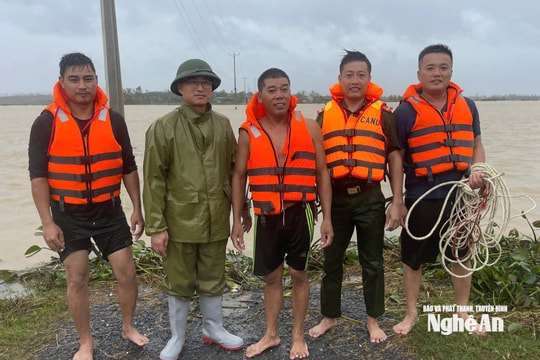
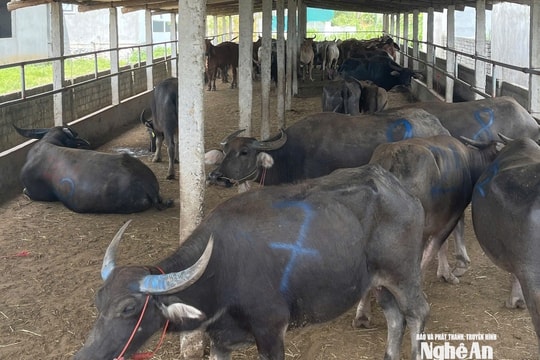
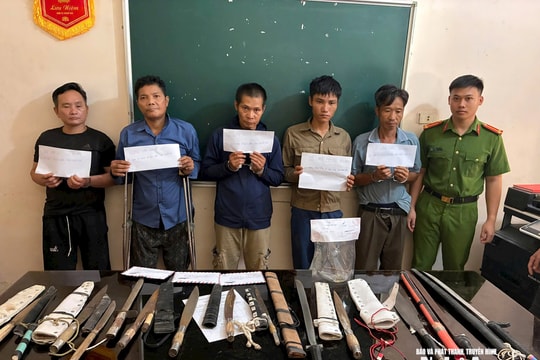
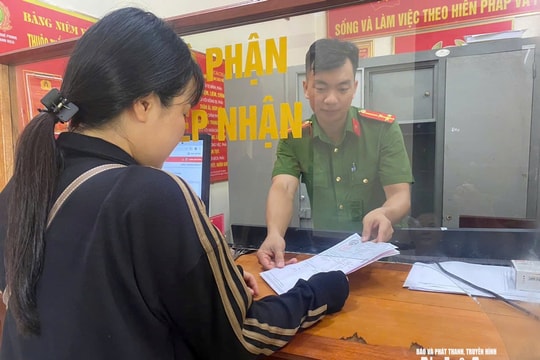
.jpg)

